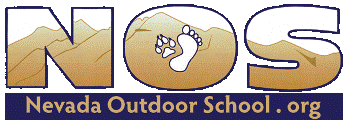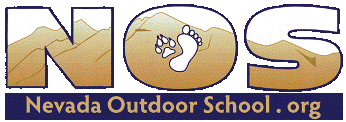
Classroom Lessons
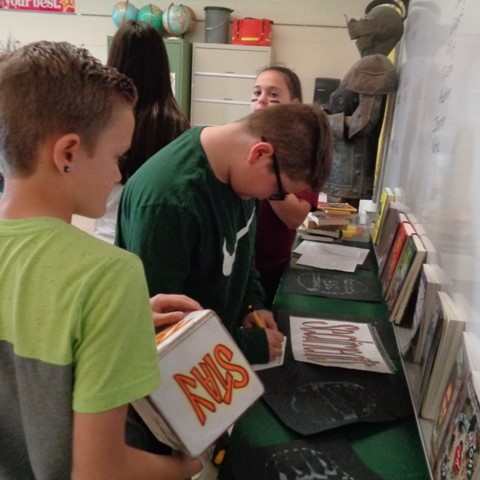
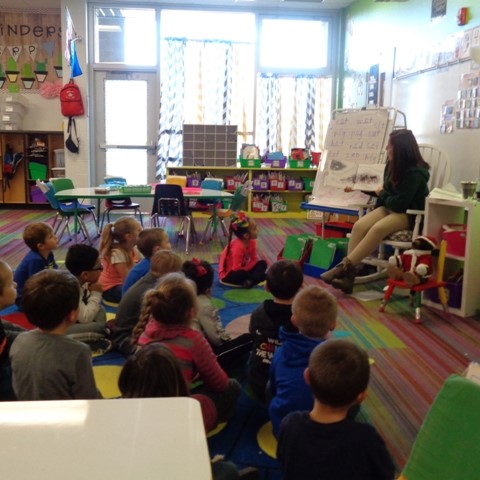
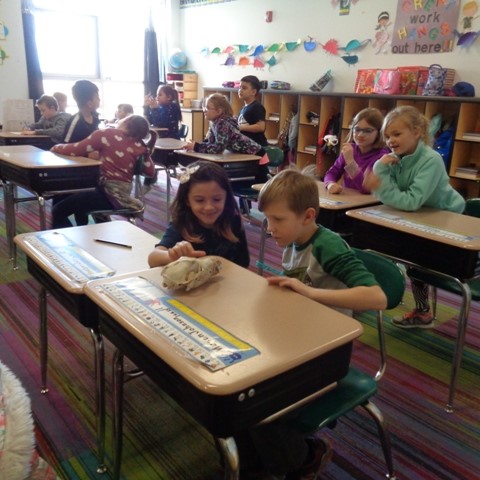
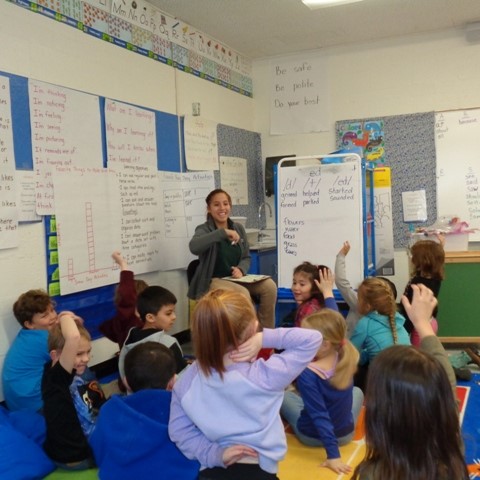
Kindergarten Lessons
Animal Homes: Students will understand that all animals live in a habitat and identify the four basic resources all animals need in their habitat to survive: food, water, shelter, and space.
Let it Snow! Let it Melt!: Students will make observations and draw conclusions about what makes ice melt as well as begin to understand the properties of and differences between solids and liquids.
Sun Rays: Students will see evidence of the Sun’s radiant energy through solar beads and sun print paper. Through these activities students will learn all living things need the Sun’s energy, what happens when people get too much of the Sun’s energy, and how to protect themselves during hot days.
Dinosaurs: Students study fossils and learn how fossils help scientists learn about ancient animals such as dinosaurs.
Earthworms: Students learn about earthworms by observing them in their natural habitats and participating in activities that exhibit basic worm functions.
Rockin’ Rocks: Students will have a rockin’ good time discovering how rocks are different in size, weight, and color. Classes will also discover the difference between living and non-living things, and finish the lesson with a rockin’ craft.
Our Amazing Moon: Students explore the changing relationships between the Sun, Earth and the Moon through a kinesthetic model and a hands-on craft project.
Flubber!: Students have fun making flubber while using the scientific method.
1st Grade Lessons
Snowflake Symmetry: Students examine properties of snowflakes and use snowflakes to identify and describe symmetry.
Energy Sleuths: In this lesson students will learn that energy is what gives people, animals, objects and machines the ability to move and survive. They will also uncover different forms of energy that humans use to perform human functions.
First Explorers: Students learn about the changing seasons and how plants, animals and humans prepare for winter. During a nature walk, students have the opportunity to act as scientists as they collect fall specimens and use their five senses to answer the question: what is fall?
Flower Functions: Students learn the basic structure of a plant and how each part works together as a system to obtain essential resources needed for the plant’s survival.
Rocks of the Earth: Students will be introduced to the layers of the Earth and learn the specific characteristics of each layer by constructing a kinesthetic model of the Earth.
Yellow/Blue Switcheroo: Through an exciting experiment, students are introduced to the steps of the scientific method and apply their knowledge to make hypotheses and detailed observations.
Our Special Planet: Students take an interactive tour of our Solar system to explore the other planets and how they compare to our special planet, Earth.
2nd Grade Lessons
Animal Tracks: Students will learn there are many ways to know of an animal’s presence other than actually seeing the animal. This lesson will introduce students to animal tracking and the concept of using tracks to access an animal’s presence and activities.
Can You Measure the Wind?: Through a variety of experiments and the creation of their own wind gauge, students will learn how to measure the strength and direction of wind.
Solar Energy: This lesson will introduce students to the concept the Sun provides energy to Earth and all living things. Through experiments, students will see how people can capture its energy to create heat.
Native American Myths -Why Seasons Change: Students understand that seasons change and that nature and storytelling play a large role in Native American culture. They have the opportunity to listen to and create myths about why the seasons change.
Pollination Investigation: Students will dissect a flower to discover the parts used in pollination and fertilization.
Sorting Rocks: Students will have the opportunity to hone their observational skills, and take rock classification to a new level, as they sort and group rocks based on their physical properties.
Our Solar System: Students will travel through the solar system and learn how far apart the planets are and how they move through the solar system.
Mentos Super Fountain Mentos + Pop = Fun: Through a fun experiment with Diet Coke and Mentos, students learn about the scientific method and enjoy a super fountain!!
3rd Grade Lessons
Owl Pellets: Students will discover what owls are and how they live by dissecting owl pellets; they will make the connection that we can learn a lot about animals by making observations of what they ingest, and in this case, regurgitate.
Winter Adaptations: The onset of winter brings change which affects all animals. Animals respond to this change in three basic way: migration, hibernation and resistance. This lesson gives students the opportunity to explore these themes through a hands-on winter adaptations activity.
Energy Chains: Students will act out a skit to demonstrate how energy makes its way from the sun to us, allowing us to run, play and even do homework. Students will understand that energy doesn’t get “used-up” it just changes form with some unusable energy escaping along the way.
Photosynthesis: Students discover the process of photosynthesis and see what happens if a plant’s resources are limited. Students also learn why plants are green and the importance of plants to our world.
Boulders to Bits: Through a competition to build the strongest mountain, students will explore erosion and weathering; they will conduct experiments to model erosive forces on the land and record their observations.
Eggs-plosion!: Students conduct egg-mazing eggs-periments while learning about the scientific method.
Play-Doh Planets: It’s hard to imagine the size of Jupiter compared to the size of Pluto. Through this hands-on activity, students will use a scale model to easily visualize such hard to grasp concepts and to learn about the relative volumes of the planets in our solar system.
4th Grade Lessons
Skins and Skulls: By exploring skull characteristics and specific evidence left behind by animals, students will learn animals have specific eating habits being carnivores, herbivores, and omnivores.
Beaver Adaptations: Students will discover the impressive physical and behavioral adaptations that help beavers survive in their unique aquatic environment.
Freezing Point: Through various experiments, students will investigate the properties of water and find out what changes it from one state to another.
What’s In Your Trash?: Students will discover the hidden energy in what they throw away and what they can do to save that energy.
Emigrant Trails: Through discussions, journaling and an interactive activity students relive the hardships and good fortunes American emigrants experienced as they traveled west along the emigrant trails.
The Many Uses of Plants: Students learn about the different materials that are made from plants as well as how important plants are to our everyday lives.
Discovering Minerals: Through a series of hands-on activities, students will learn the characteristics of minerals and how crystals form.
Putting it into Context: Through a series of activities, students learn about the importance of artifacts in context for learning about the past and the people who lived there in preparation for their field trip to Lovelock Cave.
H2Olympics: Students will learn about properties of water: cohesion, adhesion and surface tension, through a series of experiments while using the steps of the scientific method.
5th Grade Lessons
Terrariums: Students have the opportunity to see the water cycle happen right before their eyes. The students construct their own terrarium, plant seeds, and learn about the water cycle in the process.
The GREAT Great Basin Desert: Students will understand where the Great Basin Desert is located, its climate and physical characteristics, and how the animals that live there are affected and adapted to this unique desert environment. Students will use this knowledge to create an animal specially adapted to the Great Basin Desert.
Ride the Rock Cycle: Students will travel through the Rock Cycle and learn that like the water cycle, the rock cycle has various stages and does not necessarily move linearly through those stages.
Why are Sunsets Red?: Through a series of experiments, students learn light travels in waves, how light is separated and the reason sunsets have brilliant colors.
Forces in Motion: Students learn about Newton’s Laws of Motion. Through a series of experiments, students explore Newton’s Third Law of Motion in greater depth.
Static Electricity: Through a series of experiments, students will learn about static electricity and how it explains lightning.
Know Before You Go: Participants get a visual of the importance of Leave No Trace after a drawing of their favorite place gets overrun by impact monsters. Next, students will take a closer look at the principle Know Before You Go, which teaches students how to prepare for trips into the great outdoors.
Blood-Typing: Through an experiment with Kool-Aid, students follow the steps of the scientific method to learn about the experimental procedure of blood typing.
6th Grade Lessons
Coaster Physics: Explore conservation of energy by experimenting with marble roller coasters and pendulums.
Mystery Box: Students explore the nature of scientific inquiry by investigating and determining the contents of a sealed mystery box.
Chemical Reactions: Students use the scientific method to explore a set of chemical reactions and discover how organisms use chemistry to survive.
Renewable and Non-Renewable Energy (Focus: Geothermal): Students will learn about the pros and cons of different renewable and non-renewable energy sources. Students will then take a closer look at Geothermal energy to learn how it works and what it is used for.
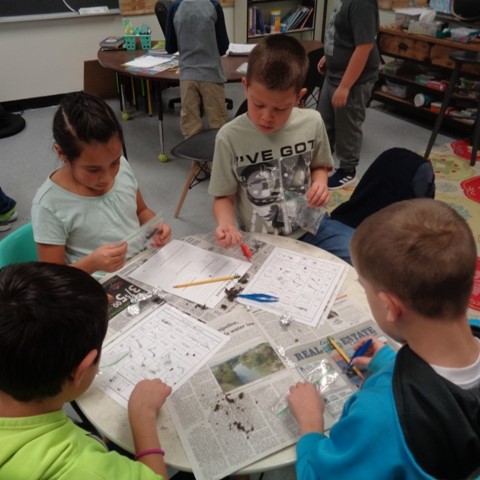
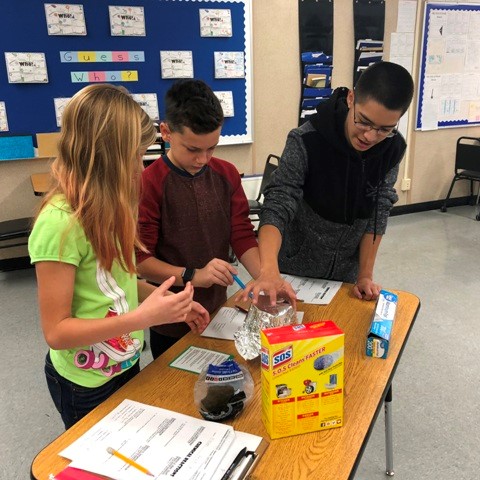
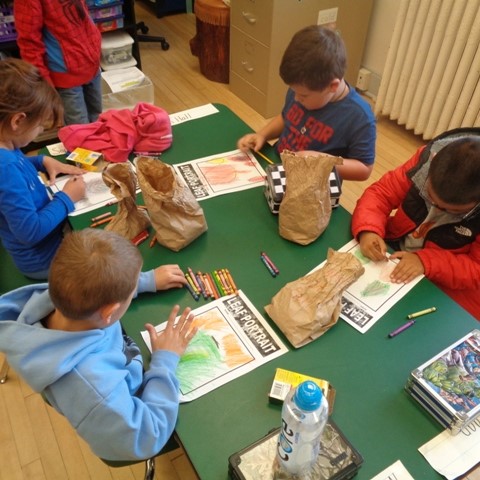
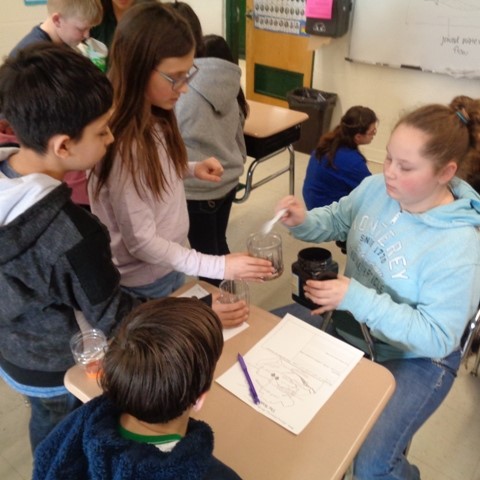
ABOUT US
Nevada Outdoor School inspires exploration of the natural world, responsible stewardship of our habitat and dedication to community.
CONTACT US
Winnemucca Office:
655 Anderson Street
Winnemucca, NV 89445
(775) 623-5656
Elko Office:
2363 N. 5th Street, Unit 102
Elko, NV 89801
(775) 777-0814
